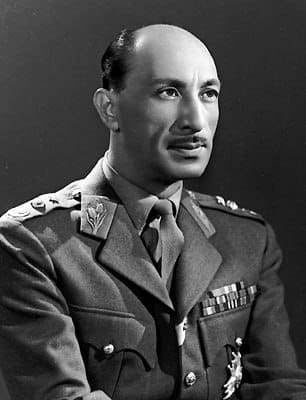During Mohammad Zaher Shah’s four-decade reign, he subscribed to the belief that “as long as a nation remains unburdened by hunger and oppression, it will not easily succumb to governance.” Consequently, the groundwork for his prolonged rule was established with the historical counsel of His Uncle Mohammad Hashim Khan, centering around the tenets of “Avian Politics.” This paradigm, pervasive during both Mohammad Zaher Shah’s reign and Mohammad Hashim Khan’s premiership, endures as a facet of the historical realities characterizing Zaher Shah’s forty-year dominance.
In the annals of contemporary Afghanistan history, Mohammad Hashim Khan, during his affluence, maintained an extensive collection of Turkeys in Kariz-e-Mir (Kohdaman). He imparted a political directive to Mohammad Zaher Shah, advocating the adoption of an authoritative policy towards the Afghanistani populace. Hashim Khan directed his gardener to withhold feeding the Turkeys for several days, orchestrating a scenario of hunger. After three to four days of hunger, Mohammad Zaher Shah visited them, promptly offering grains to observe their reaction. The famished Turkeys, displaying eagerness and excitement, congregated around the Shah.
In the subsequent week, Mohammad Hashim Khan instructed his gardener to moderately feed the Turkeys. Accompanied once again by Mohammad Zaher Shah, he revisited Kariz-e-Mir to observe the Turkeys. However, in contrast to the previous week, none of the Turkeys exhibited enthusiasm; they refrained from gathering around the Shah. This event symbolized the metamorphosis of “Avian Politics” into a symbol of the oppressive reality permeating Afghanistan’s society during Mohammad Zaher Shah’s forty-year rule. Post this episode, Mohammad Hashim Khan advised Zaher Shah, stating: “The people resemble these Turkeys. If they are hungry and oppressed, they obey you, even with the slightest favor. But if they are satiated and content, they disperse and forget your authority.”
In the second volume of “Afghanistan in the Path of History,” Ghulam Mohammad Ghobar recounts how the tribal rulers of Afghanistan, including Mohammad Zahir Shah, adopted the political approach of the Hashem Khan’s “Avian Politics “dynasty. Drawing parallels with similar political strategies in India, they believed that governing the impoverished masses was more feasible than managing an enlightened and placid populace. Consequently, during his forty-year reign, Zahir Shah implemented this method through systematic national oppression, imposing crippling taxes on peasants, monopolizing the economy, and perpetuating a state of extreme poverty and need among the people of Afghanistan, thereby ensuring the enduring power of his family. Throughout Mohammad Zaher Shah’s forty-year reign, the people of Afghanistan, instead of endeavoring towards the prosperity and advancement of their nation, were preoccupied with satiating their famished stomachs and those of their children. According to contemporary Afghanistan history, the policy of promoting poverty in society was so oppressively organized during his reign that honorable men discreetly resorted to begging on cold winter nights. Simultaneously, laborers visited bathhouses with buckets, purchasing warm ashes for their children to alleviate dire conditions.
Ghulam Mohammad Ghobar, in his narrative, quotes Mohammad Masoom Majdidi concerning poverty and the despotic treatment of those incarcerated in the royal dungeons: “One night, I witnessed Kabul police chief Mir Abdulaziz Khan entering my residence in a distressed state. Inquiring about the cause of his distress, he recounted passing by the Kabul detention house, where the sound of breaking bones reached his ears. Illuminating the scene with a handheld lantern, he observed prisoners in the darkest corner collecting broken bones and consuming them out of extreme hunger. This sight deeply disturbed him. The following day, I prepared food for the prisoners, collaborating with the guards to distribute it to them. Shortly thereafter, Mirza Mohammad Shah, the head of the records department, visited my house, conveying, ‘His Excellency the Prime Minister mentions that you are supplying nightly bread to the “Kootwal” prisoners. Refrain from this in the future, as the government aims to discipline them for improvement.’”
According to the book “Afghanistan in the Twentieth Century,” during the rule of Mohammad Hashim Khan, the Uncle of Mohammad Zahir Shah, there was a brutal despotism characterized by ruthless massacres. No Afghanistani could move from one place to another without obtaining permission. Historical accounts reveal that the regime under the sway of “Zahir Shah’s monarchy” took pleasure in witnessing the plight of the people. Even after successfully resisting thousands of invading soldiers for their freedom and rights, the youth were coerced into performing espionage tasks due to poverty. Within the country, favorable conditions for dignified work were not created for the affluent. Except for a few rare factories like the Jabul-al-Siraj textile factory, people had to engage in laborious tasks and travel to earn a meager livelihood. Returning home at night, due to exhaustion and hunger, they had no room for resistance against deceit, tyranny, and oppression.
Maintaining the country in a state of medieval backwardness, hindering the development of national knowledge, extinguishing the spirit of courage among the people, and resisting internal and familial despotism, along with creating internal hypocrisies such as linguistic and tribal superiority, were factors sustaining the forty-year rule of Mohammad Zahir Shah. This rule relied on intimidating the people through spies, chains, and prisons, torture and execution, deception, false displays of reforms, and feigned adherence to Islamic Sharia.






